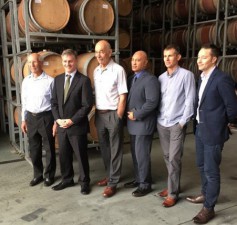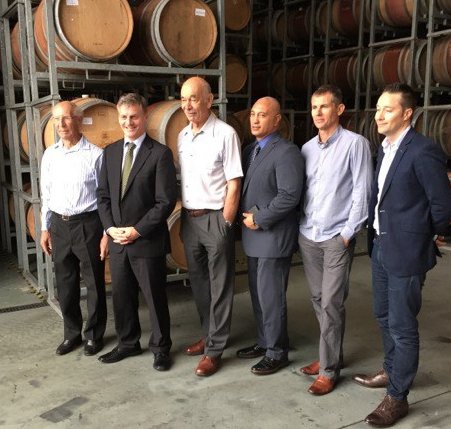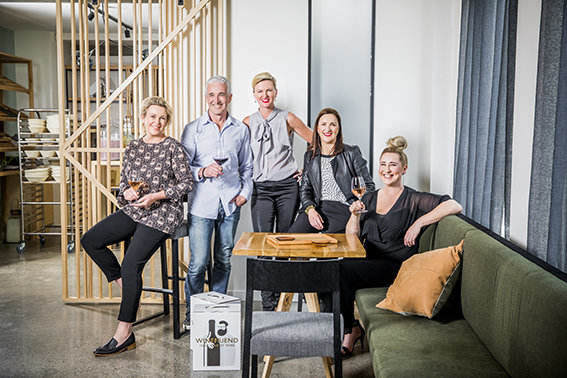
To mark 100 years since Babich Wines was founded, the Babich Family shared some their fabulous stories and outstanding wines with a select group of media, including FMCG Business Head of Content Tamara Rubanowski, at Euro in Auckland recently.
The celebrations continued with Deputy Prime Minister, Bill English, accompanied by Alfred Ngaro – National Party List MP for Te Atatu – visiting Babich Wines in Henderson to find out what it takes to keep a family owned, New Zealand wine brand going successfully for 100 years.
Babich Wines also has vineyards in Marlborough and Hawke’s Bay. However, the Henderson winery, in West Auckland, is still where the business headquarters are based. Founder, Josip Babich along with his four older brothers, purchased the 72 acre property in 1911as regenerating bush following the milling by Thomas Henderson some 40 years earlier.
English met David Babich (General Manager), Joe Babich (Managing Director), and Peter Babich (Chairman) and then went on to tour the winery, the vineyard and the bottling line.
Since the first bottle of Babich Wine was produced in 1916, the Babich Family have been regarded as leaders within the New Zealand wine industry. They are New Zealand’s most experienced family owned winery and are strongly engaged in export markets around the world.
Joe Babich, Managing Director, and son of the founder, Josip Babich said: “It was a pleasure to host the Deputy Prime Minister and to discuss how our business and our industry have evolved over the past 100 years. The wine industry is growing strongly in key export markets and the Government is supporting that growth via the work that New Zealand Trade and Enterprise is doing offshore, as well as the free trade agreements that allow an even playing field for our wines in international markets.”
“One hundred years of continual family ownership puts us in a unique position in the New Zealand wine industry. Our family company has experienced massive change over a hundred years, yet has always been in the forefront in developing new wine styles, trialing new grape varieties, moving into new regions and importantly, developing and growing new international markets.”



